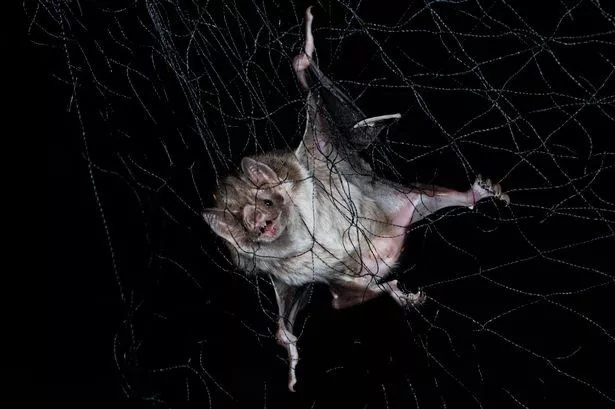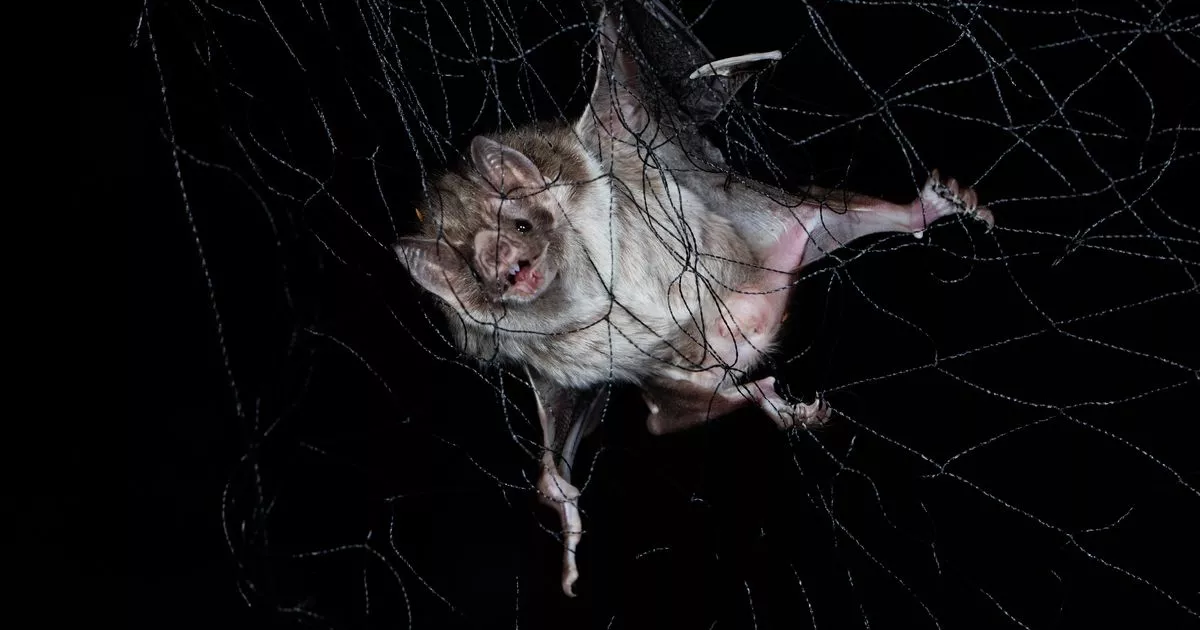The local health authority is warning people to take precautions in order to minimise their risk of contracting the condition which is almost always fatal People who come across a bat are warned not to handle it and contact local authorities(Image: GETTY)
People who come across a bat are warned not to handle it and contact local authorities(Image: GETTY)
The Catalan Department for Health has issued a warning as 21% of animal attacks in the area are now considered to be “risky” for disease transmission. Bats with rabies are a particular concern, according to the authority.
It urged people in Catalonia to avoid contact with bats at all costs as these animals are the main carriers of rabies in the area. Rabies is passed on through bites, scratches and other close contact from an infected animal such as an infected animal licking your eyes, nose or mouth.
The authority cautioned: “It is important that if a person finds a bat, they do not handle it, even if it seems harmless or injured. And in this case, notify rural agents so that they can take charge of its management.
“In the event of a bite, scratch or lick from an animal considered at risk, both in Catalonia and in any other territory, in addition to immediately washing the wound with soap and water to reduce the risk of infection, it is necessary to consult a healthcare centre so that it can assess the actions to be taken.”
It also reminded people to be wary when travelling to other countries or areas that might have endemic rabies but Catalonia is currently free of terrestrial endemic rabies. This means that animals such as dogs, cats and ferrets in the area have no risk of contagion.
The authority noted that sporadic reports of bats with the infection have been noted in the area. 88 animal attacks were reported in Catalonia between January and July 29 this year. 22 were from bats, which the authority says is in line with reports from previous years.
However, this year 63% of cases have needed intervention because of possible rabies infection. The health authority explained that people who have been attacked by an animal considered at risk of rabies are usually given anti-rabies medications and have to follow a vaccination schedule after the suspected exposure.
June, July and August have historically been the most common months for animal attacks in Catalonia. With the majority of incidents happening during tourist trips in the area, on the street or in a domestic environment.
The NHS warns that travellers heading to Asia, Africa, Central America and South America may need to be on high alert for rabies as it’s more common in these areas.
In some cases, a rabies vaccine may be recommended if you’re travelling to places where it may be hard to get emergency medical help or if you’re likely to come into contact with animals, such as doing a lot of outdoor activities.
Rabies is very rare in the UK. It can be spread by a range of mammals including dogs, bats, raccoons and foxes. Currently in the UK, much like Catalonia, it’s only sporadically found in some bats.
Rabies can be prevented if you get treated quick enough after exposure. However, once symptoms start appearing it cannot be treated and is almost always fatal according to the health service.

